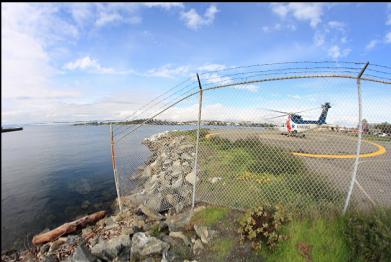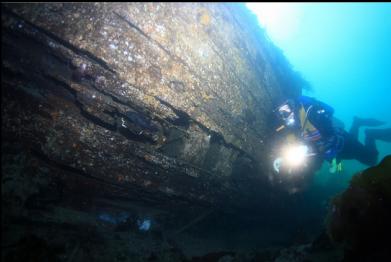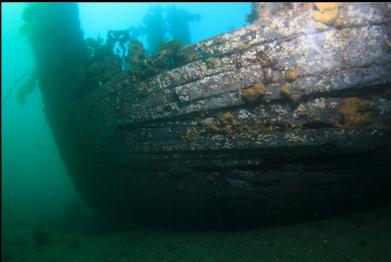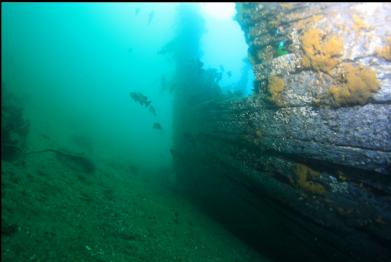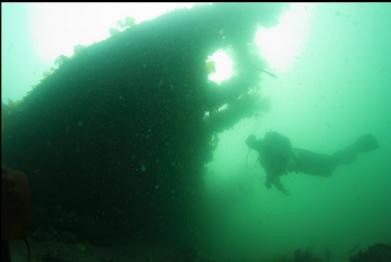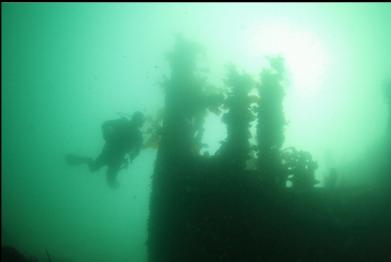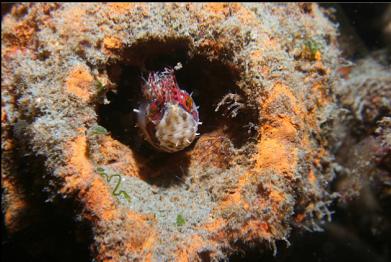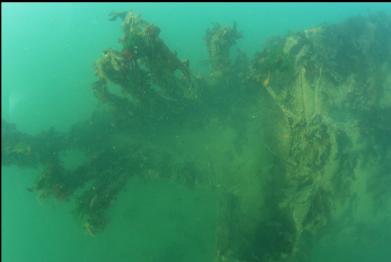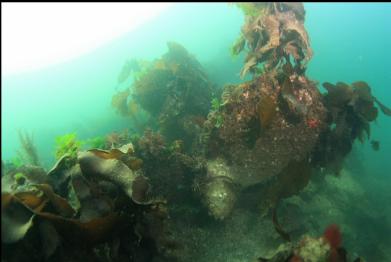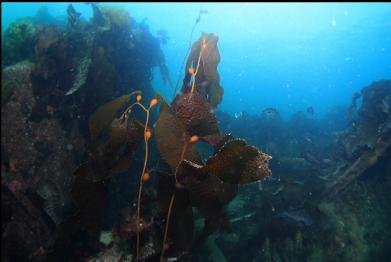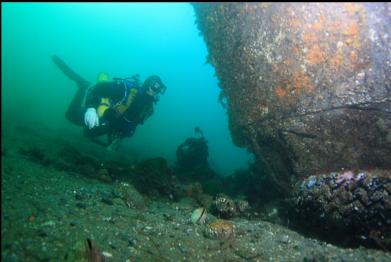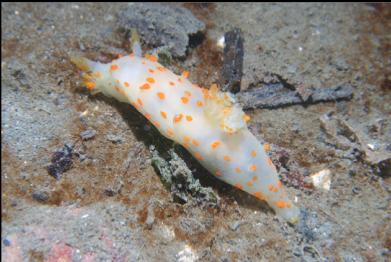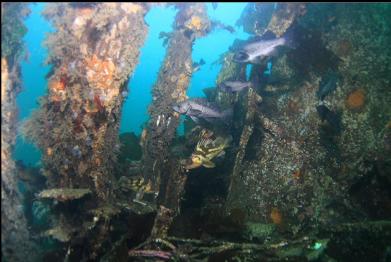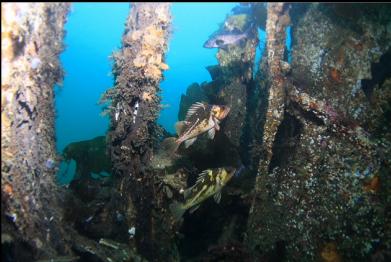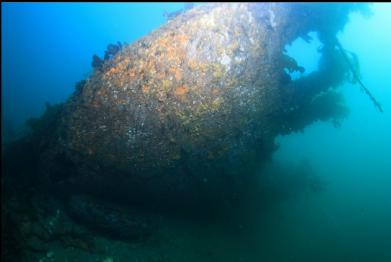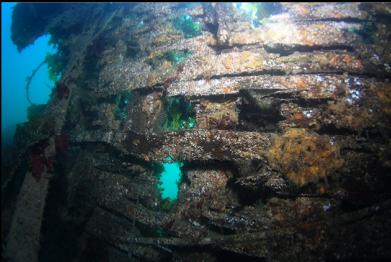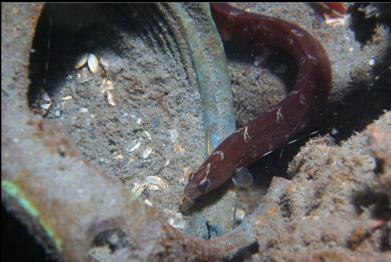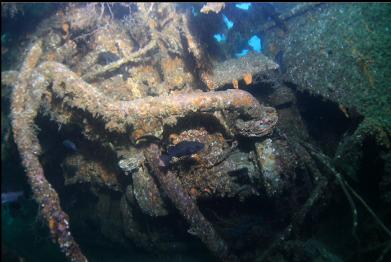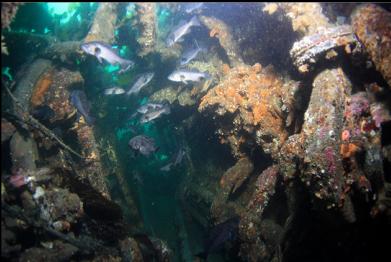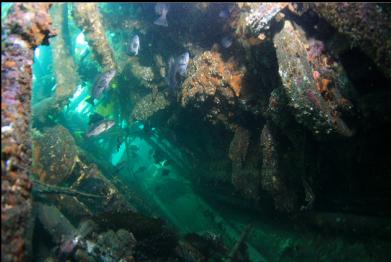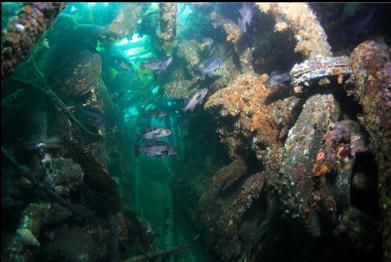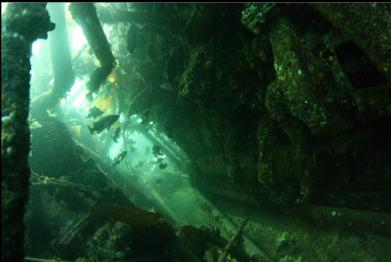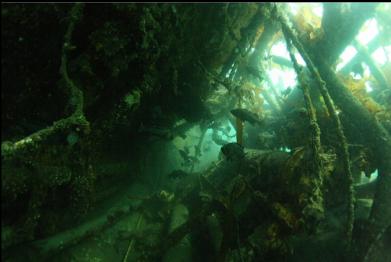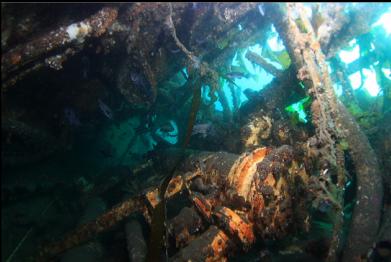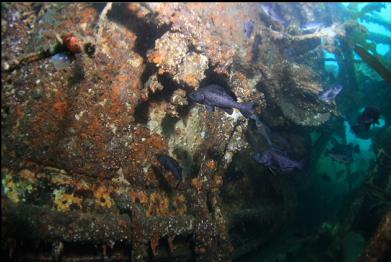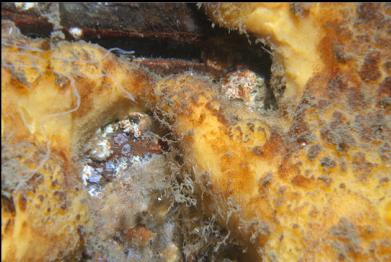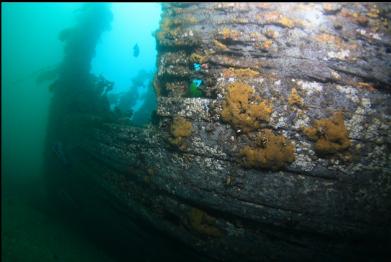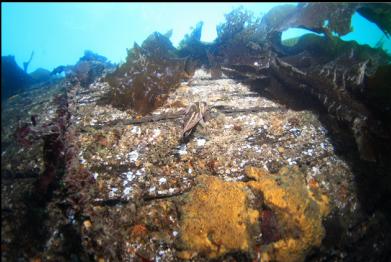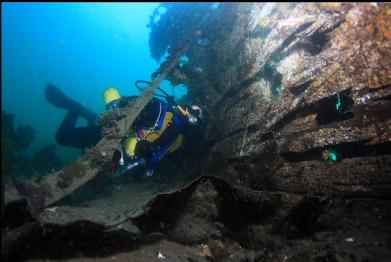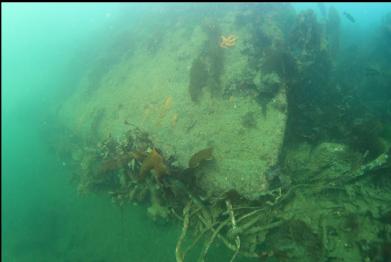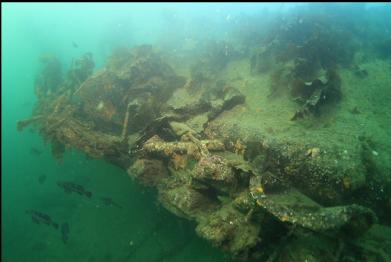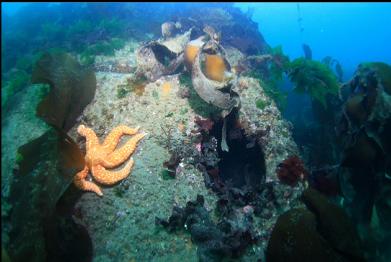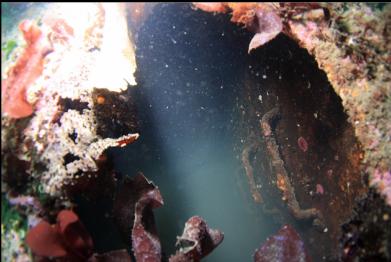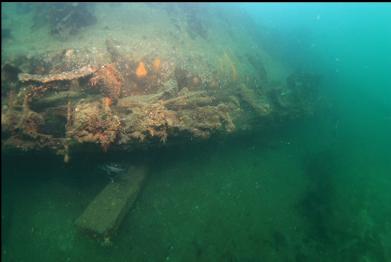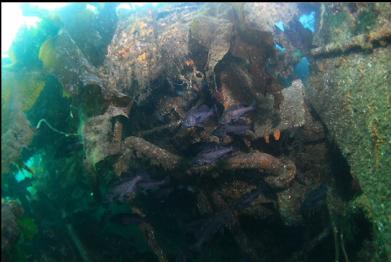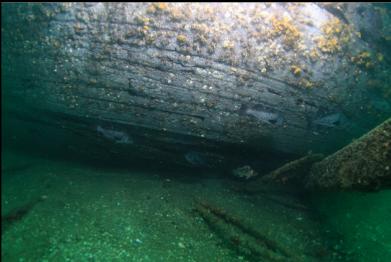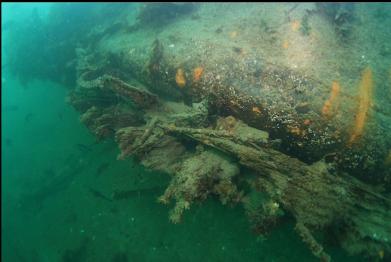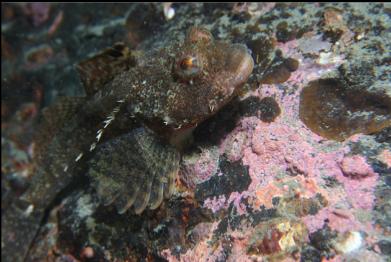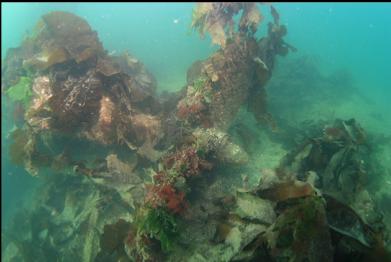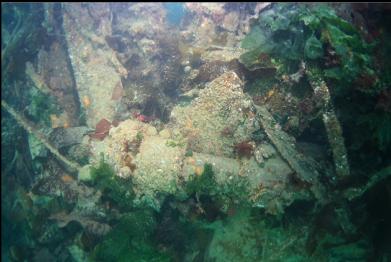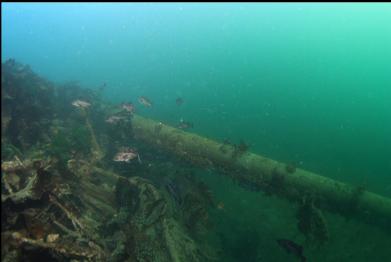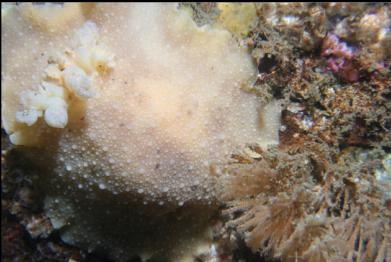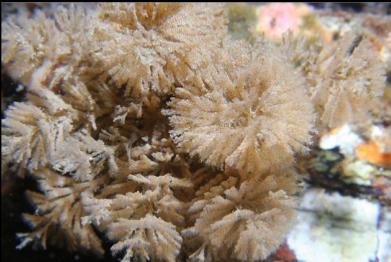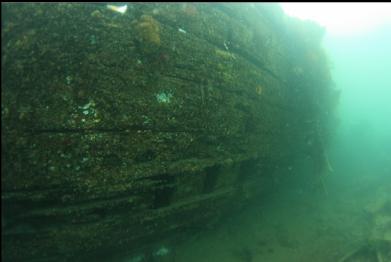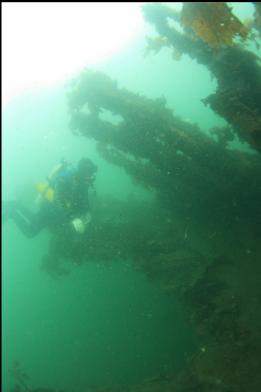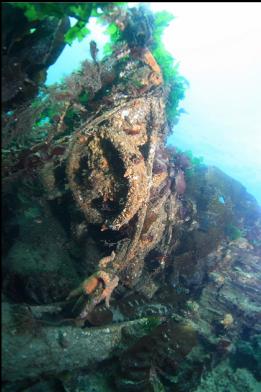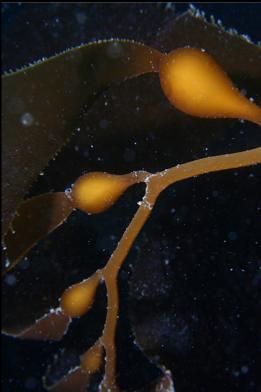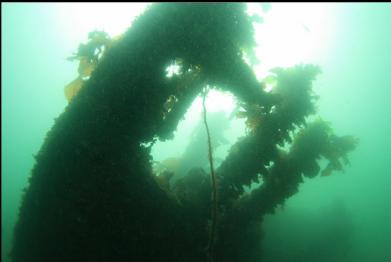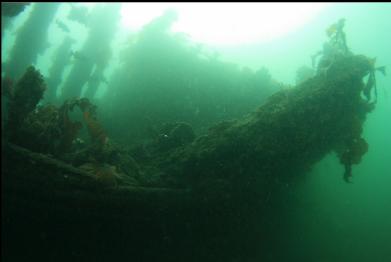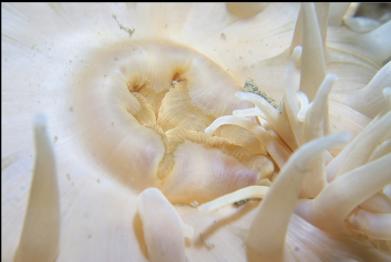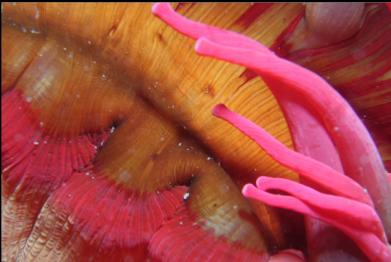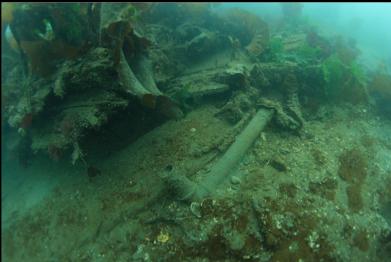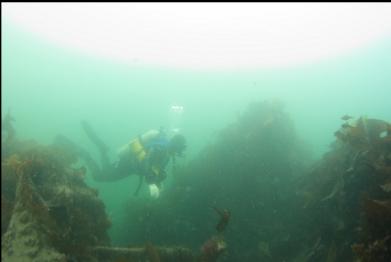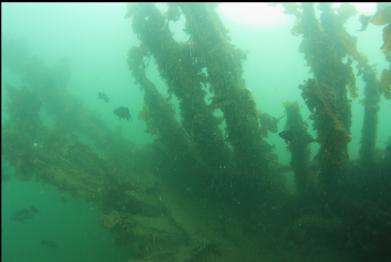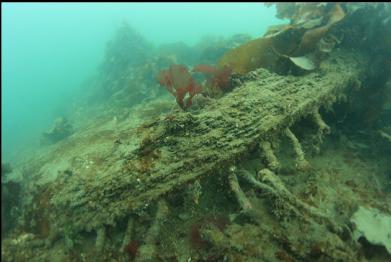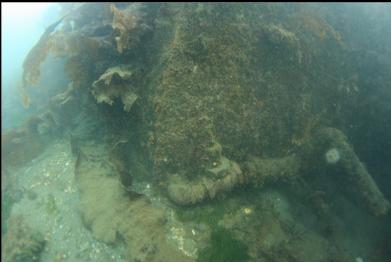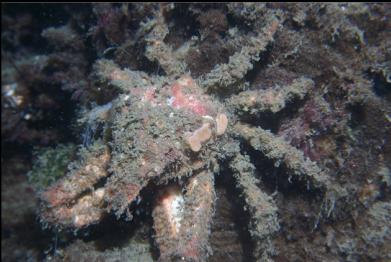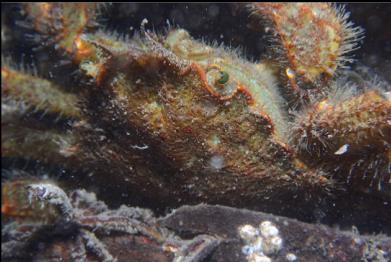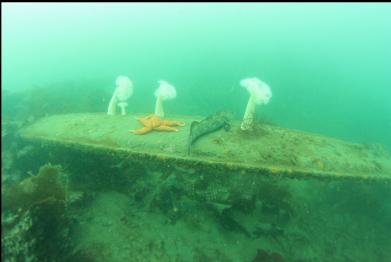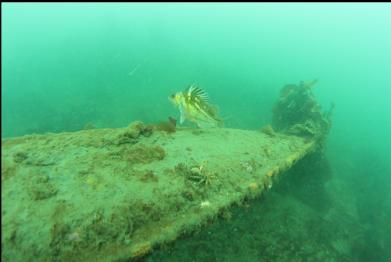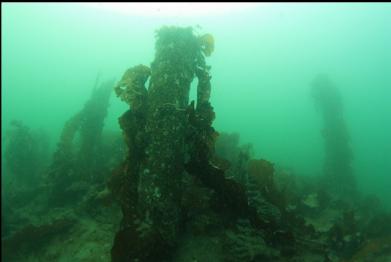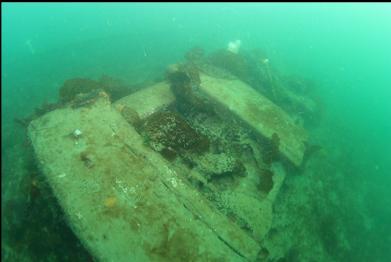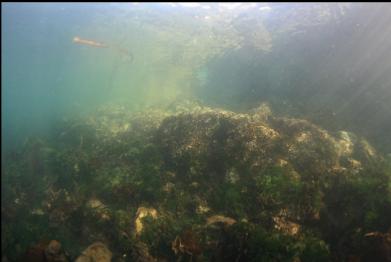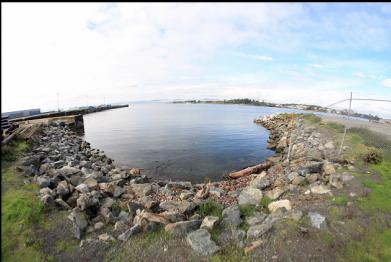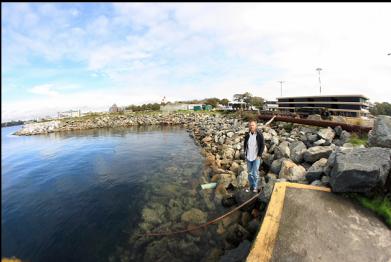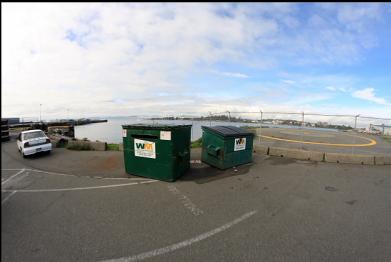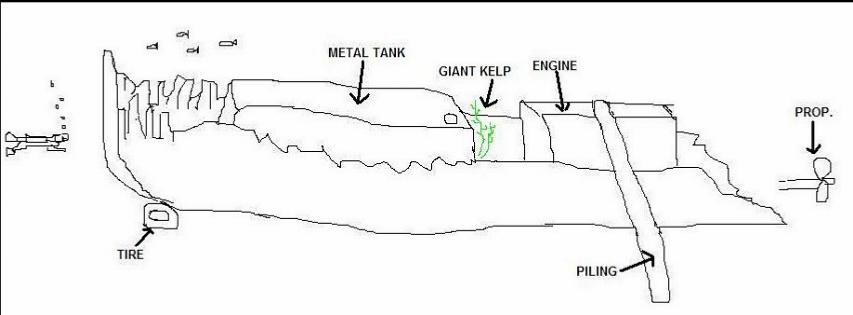Although this isn't the wreck of an aircraft, it's located near the Helijet "airport" in Victoria harbour near the Ogden Point cruise ship docks. It's marked on the marine chart, but I've never heard of anyone diving here and I had no idea what kind of wreck it was or if it was still even there. Because of it's location, I've always assumed that there was no shore access (much of this area is fenced off), but one day I drove down for a look. There's a large pay parking lot with the helicopter pad on one side and the cruise ship docks on the other. In the middle there's a small bay where the wreck is located just offshore. You can park about 10 feet from the water and there's no fence. This was all I needed to convince me to try for a dive here. I pretended that the rules that apply to working divers in harbours didn't apply to a recreational diver like me and I showed up with my dive gear on Sept. 26, 2010. After a short slope of boulders, I reached the silty bottom about 15 feet deep. Visibility was only about 10 feet, but I wasn't expecting much more than that. I followed my compass West to where the wreck is shown on the chart. The bottom was about 25 feet deep, when I reached a mound that stretched out about 5 feet high. I assume that this is the base of what used to be the old CN rail dock. You can see this dock on older charts. It was removed in the early 1990's I think. This mound was heading in the right direction so I followed it and eventually found the wreck on it's South side about 25 feet deep. It was a wooden vessel about 50-100 feet long. Judging by it's location on the mound, I assume it sank while at the rail dock. It was lying on an angle on it's port (left) side. What was left was the lower part of the hull and piles of piping, valves, metal plates and other corroded pieces of machinery. For some reason my camera flash wasn't firing so I was stuck taking natural-light photos on this dive. There were yellow sponges growing on the hull and swarms of black rockfish schooling around. There was some sort of large metal tank in the middle of the wreck. I looked down a round hole that looked too small for a person to enter and saw rungs from a ladder running down inside. Just aft of the tank I was surprised to see a few spindly pieces of giant kelp growing out of the wreck. Usually this kind of kelp is found in areas with higher salinity and surge near the open ocean. After swimming around the wreck a couple of times, I continued to follow the mound out into the harbour. There were a few stumps of pilings from the old dock still standing. About 30 feet deep there was a long, narrow, flat piece of metal lying across the mound with a few plumose anemones, lingcod and copper rockfish on it. Because of my camera strobe issues, I came back 2 days later for some proper photos. This time visibility was a surprisingly-good-for-the-harbour 20 feet. I could see much more of the wreck this time. Just aft of the big metal tank, there was a large engine. I couldn't see the top of it since it was covered with bottom kelp, but I'm assuming it was a diesel engine. There was also a mess of pipes, valves, filter housings, pumps and heat exchangers in what used to be the engine room. More black rockfish were hiding in here. A long wooden piling was leaning on top of the engine. It was difficult to see under the mess of kelp and jagged metal, but there was a shaftline with some bearings running towards the stern of the wreck. I lifted up the kelp blades to try and follow it to where the propeller had been cut off, but I ended up finding the 3-bladed propeller still intact. On a day with decent visibility, this can be a pretty good dive. The wreck itself is interesting, but there is also a good deal of life living on it. Apart from the black rockfish, there are also lots of copper and quillback rockfish, lingcod and a variety of nudibranchs. I'm definitely going to come back. - Maybe later in the year when there isn't so much kelp covering everything.


